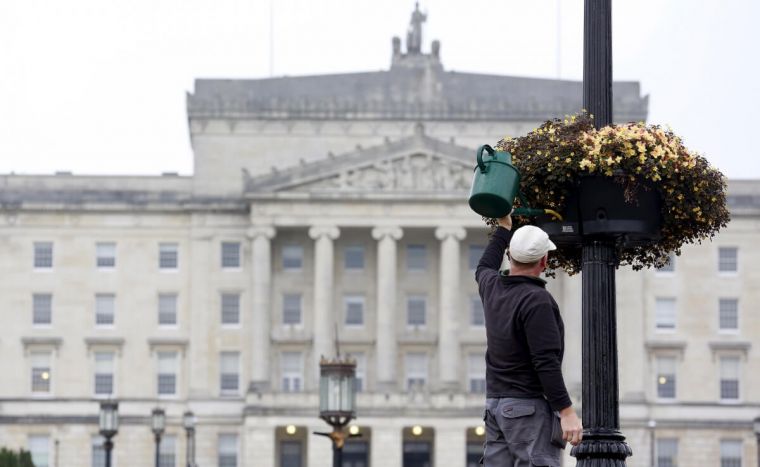Abortion in Northern Ireland: New guidelines hint at liberalisation
New guidelines that hint at the liberalisation of abortion in Northern Ireland have been published.
They appeared on the department for health's website late on Good Friday evening in what appeared to be attempt to avoid controversy. The region's law on fetal termination is the strictest in the UK but the new guidelines mark a shift in interpretation from the previous 2013 instructions.

The guidance, which was published after a series of legal challenges to the current law, does nothing to change the legislation itself but allows for a more liberal interpretation.
In Northern Ireland termination is only allowed if the mother's life is in danger. However the new guidance emphases that "life" should be interpreted as including "her physical and mental health".
Northern Ireland's refusal to allow abortions in cases of fatal fetal abnormality or in cases of rape or incest has been declared incompatible with the European Convention of Human Rights' decree for the right to a private and family life. The declaration does not carry an obligation to change the law and the guidance reaffirms this ban. However it adds "the impact of fetal abnormality on a woman's physical or mental health may be a factor to be taken into account when a health professional makes an assessment".
Christian public policy charity CARE denied the guidance pointed to a liberalization of the law.
The charity's Northern Ireland spokesman Mark Baillie told Christian Today: "It is critical to remember these guidelines, while appearing to offer a more liberal view on how the law is to be interpreted, do not signify an actual change in the law itself.
"I was especially pleased the guidelines made it clear the purpose of abortion laws in Northern Ireland is to protect the mother and the unborn child."
David Smyth, public policy officer for the Evangelical Alliance in Northern Ireland welcomed the guidelines and joined Baillie in pointing out the law had not changed.
"We reject the false dichotomy in so many debates around abortion that pitches a woman against her child," he told Christian Today.
"The current law in Northern Ireland provides a difficult and delicate balance between protecting both lives. It's a law built upon the importance of life, family and community."
However Sarah Ewart, who travelled to Britain to have an abortion after she discovered her baby had a fatal fetal abnormality said: "New guidance may help some women, but it won't help me and other women with fatal foetal diagnoses."
She continued: "All the guidance in the world cannot change Northern Ireland's nineteenth-century law and that is what is needed."











